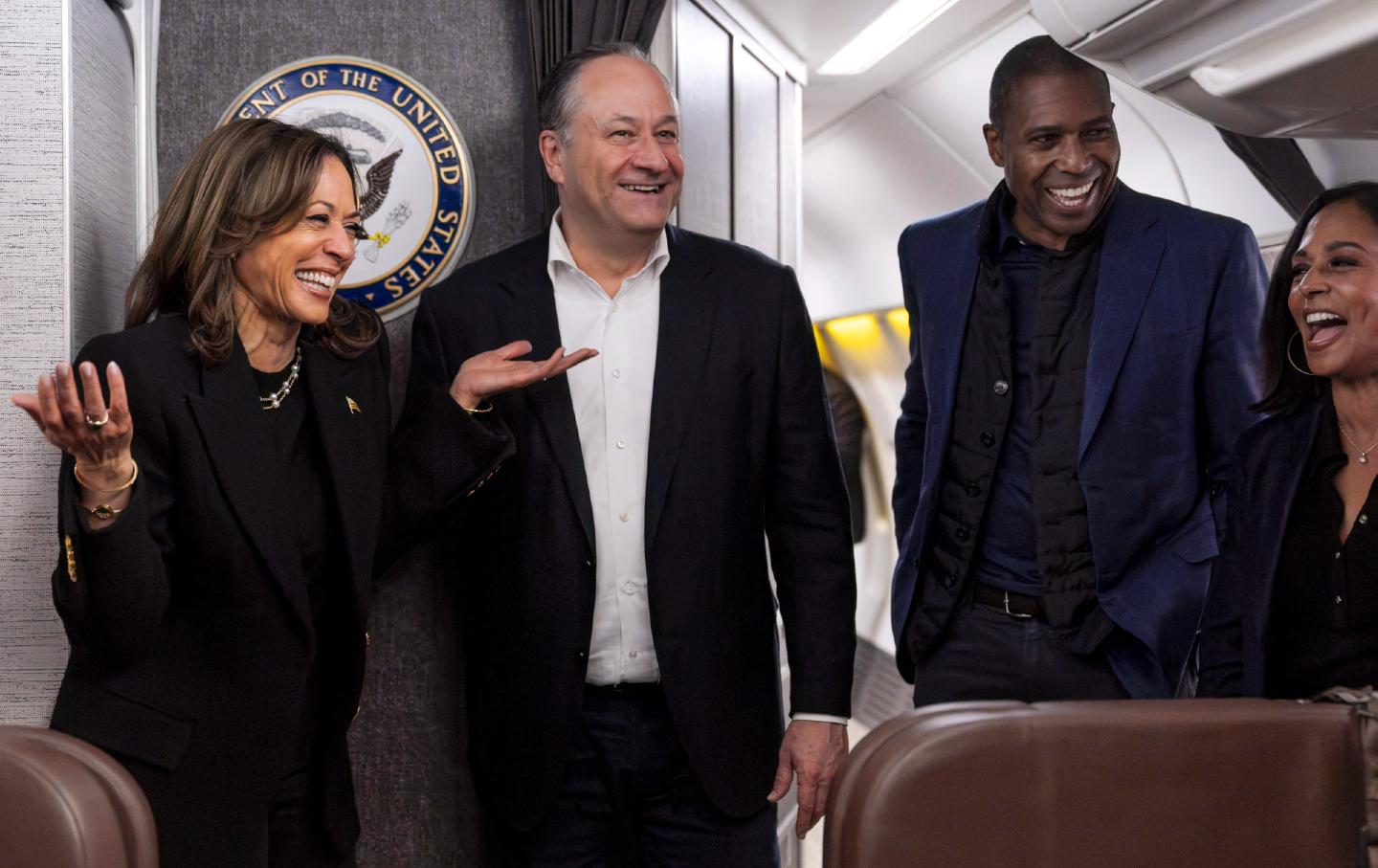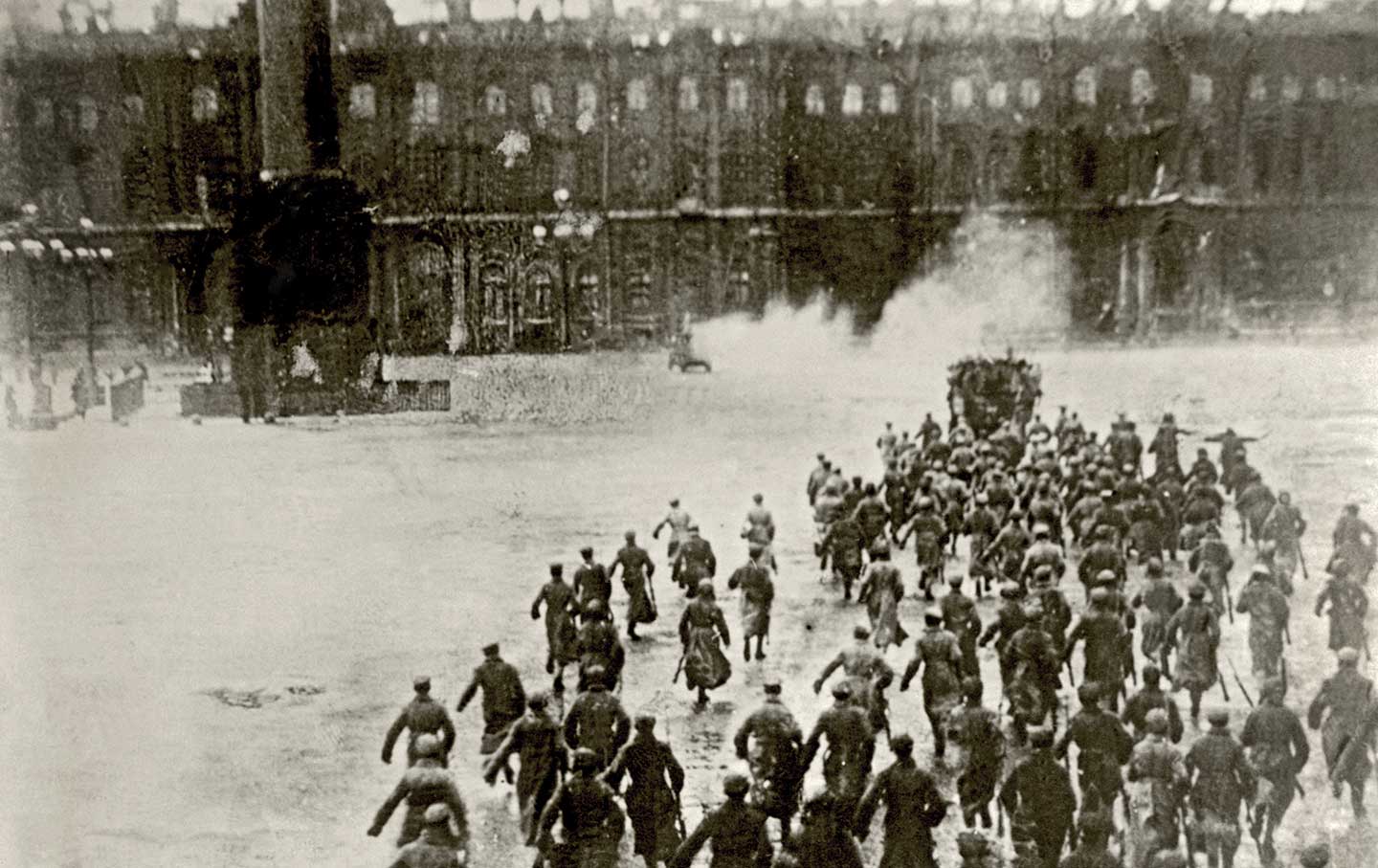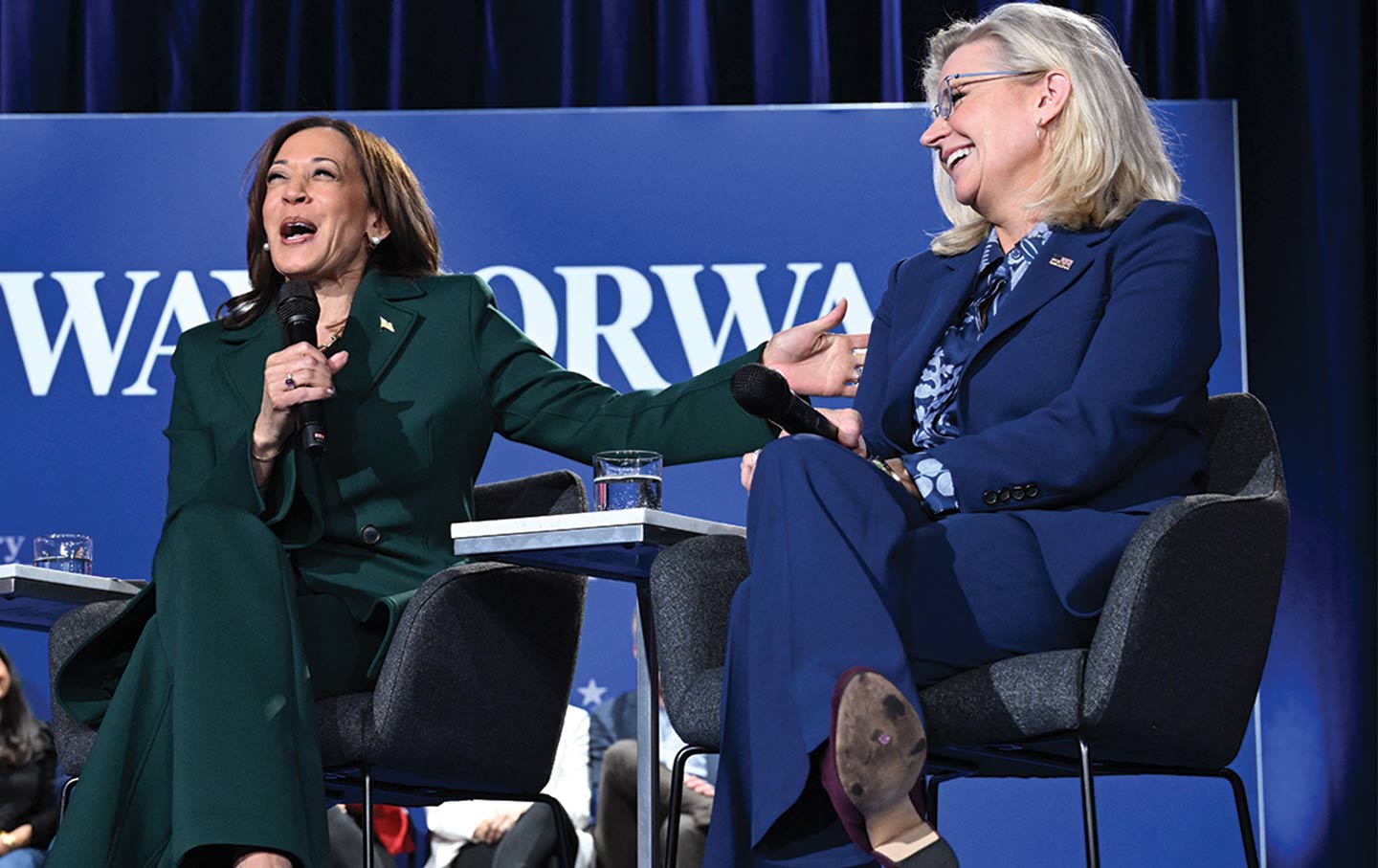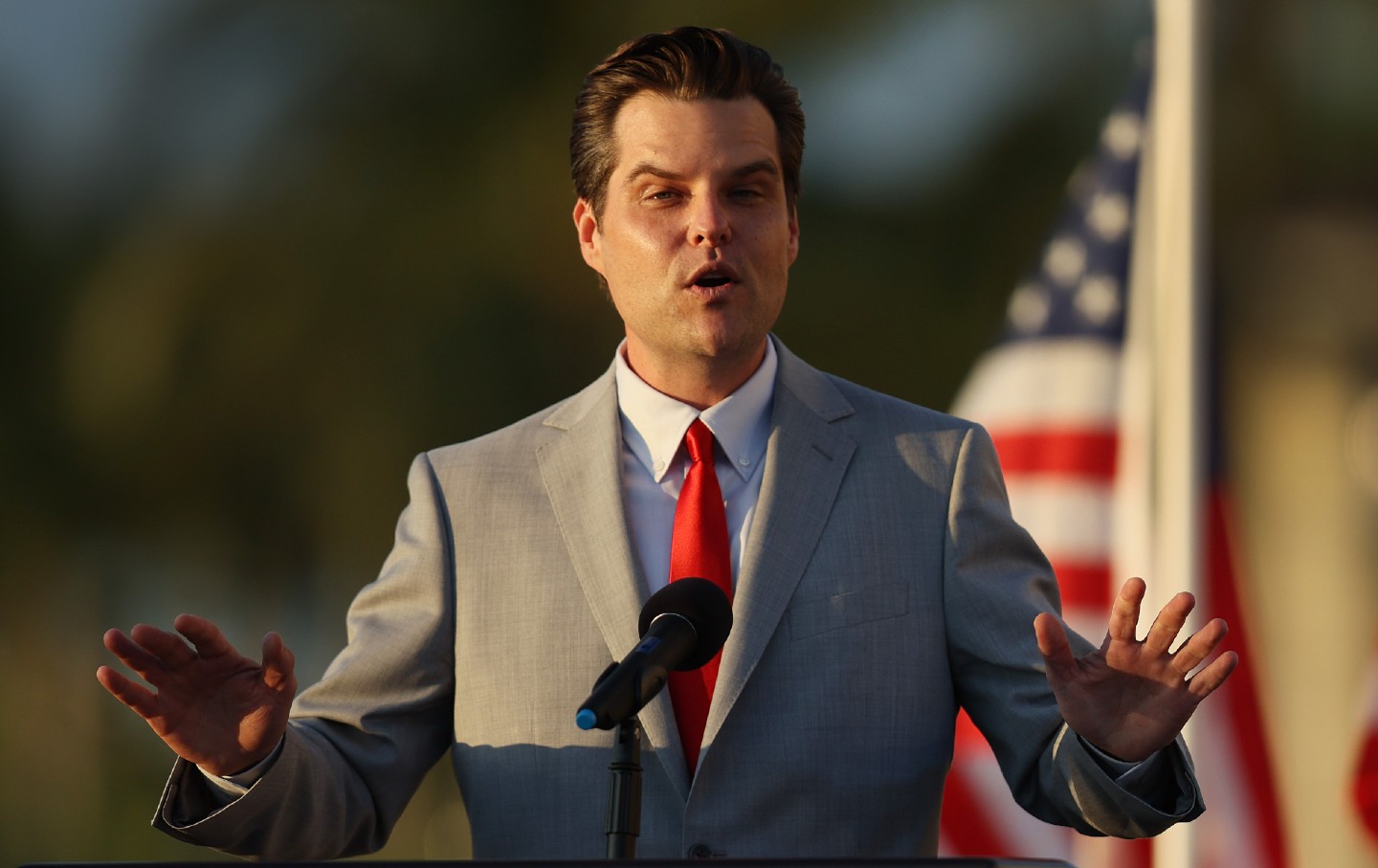What’s—Still—the Matter With Kansas?
What’s—Still—the Matter With Kansas?
As recent events bear out, when Thomas Frank lamented, “We’ll have to drag the Democrats kicking and screaming to victory” in 2017, if anything he was understating the challenge.


Five months before President George W. Bush was reelected in 2004, Thomas Frank published a book that answered the question on every liberal’s mind: Why were Republicans clobbering us? What’s the Matter With Kansas? How Conservatives Won the Heart of America painted a picture of a dyspeptic heartland in the throes of a class-inflected right-wing backlash against liberal elites.
Kansas had long skewed Republican, but Frank observed two major shifts in the 1990s: The Kansas GOP transformed itself from a party of pragmatic centrists to one dominated by right-wing culture warriors who fulminated over the evils of teaching evolution and of rap music but devoted themselves to cutting rich people’s taxes and causing “incalculable, historic harm to working-class people.” This new breed of Republican drew its support from an unlikely coalition of business elites and formerly Democratic, socially conservative, poor and working-class Kansans who felt, not incorrectly, that their way of life was under siege. How far-right Republicans managed to flip blue-collar Democrats 30 years ago is the story of Kansas—and still the story of our time.
Frank warned that Kansas’s political realignment would go national, forcing American voters to choose between business-friendly fiscal conservatives and business-friendly fiscal conservatives who hoisted rainbow flags. That dystopian moment arrived in 2016, when “America’s blue-collar billionaire” won 62 percent of the white working-class vote.
But there was a twist: Trump’s appeal to working-class voters was both cultural and economic. On the 2016 campaign trail, he talked about jobs and trade 10 times more than social issues like racial justice and trans rights and 20 percent more than immigration, according to a study recently published in Jacobin. Trump infused his speeches with empathy for down-and-out workers and places, pointing the finger at the “sick political class” on whose watch the American dream had died. And he forged a bond of mutual victimhood at the hands of smug liberals who scorned them and him.
Working-class Democrats of all races have been on a farewell tour since 1988. Most of them, pollsters tell us, are focused on economic concerns. But the working class is not monolithic, and for growing numbers, social issues are equally compelling. In Frank’s analysis, cultural wedge issues came to overshadow material concerns when Democrats stopped speaking to those on the losing end of free-market capitalism, leading to the vexing irony of pocketbook voters backing candidates who took money out of their pockets. If both parties promise variations of business as usual, but one taps cultural grievances while the other says that those who harbor such grievances are deplorable, many will shun the deplorers.
Those cultural battles touch on deeply held values that liberals shouldn’t simply condemn. Some people truly see abortion as murder and feel morally compelled to prevent it. For others, being a parent means protecting their daughters from encountering biological males in their locker rooms.
Such judgments become ultra-fervent when demeaned by strangers. And boy, do educated liberals like to look down on the rubes. That bad habit, documented in Nancy Isenberg’s book White Trash, dates back to British colonial policies that stigmatized landless rural whites as “waste people,” the better to exploit, penalize, and expel them.
Today, the “waste people” are known as “white trash,” gun-toting bigots whose problems are attributable to their own backwardness. Needless to say, contempt for low-income whites generates ill will. As Frank put it, “A more ruinous strategy for Democrats would have been difficult to invent.”
Compounding the damage done by the Department of Sanctimony, labor unions no longer play the crucial role they once did in maintaining blue-collar loyalty to the Democratic Party. In 1964, 21 percent of the Kansas workforce was unionized. By 2000, it was 9 percent. Without unions, wages stagnate, labor is outsourced, and political education diminishes, eroding Democratic Party identity and loyalty.
If Democrats want to pull voters away from the eternal culture war, they need to offer a left populism that makes working people feel respected and valued. A left populism that tells them they matter, no matter how few items on the “In this house we believe…” checklist they embrace. A left populism that is demonstrably better for them than the protectionist/nationalist/trickle-down mishmash of Trumponomics. Culturally conservative working Americans can still be pocketbook voters, but only if Democrats give them reason to be, as Biden, to some degree, has done.
In Kansas, things got worse before they got better. In 2012, Governor Sam Brownback implemented a gigantic tax cut (repealed in 2017) that devastated public schools. Brownback’s unpopularity paved the way for Democrat Laura Kelly to become governor in 2019. Still, all but one member of Kansas’s congressional delegations are Republican (and not of the moderate variety), and Republicans hold a supermajority in the state Legislature.
Liberals like me learned a lesson from Frank, but it was the wrong one. When I first read What’s the Matter With Kansas?, the anti-intellectual nuttery of flyover country stuck in my elite-educated young mind like Velcro. But Frank’s injunction to Democrats to look in the mirror at our part in fueling the backlash went unheard. Surely my side was beyond reproach; our goodness shone so bright it was blinding.
Only years later, after moving to the country, developing an ear for contempt, and reading Frank’s 2016 opus Listen, Liberal!, was I able to see how liberals, with our “the cruelty is the point” incantations, inflame the very culture war we bemoan. Why does the left persist in scolding wrongthink on the most divisive of issues when we could be building a winning coalition that supports creating a federal jobs guarantee, breaking up monopolies, capping drug prices, and cutting taxes for the middle class? Coming up with winning issues isn’t the hard part, Frank noted in 2017, it’s getting Democrats to embrace them: “We’ll have to drag the Democrats kicking and screaming to victory.”
We cannot back down
We now confront a second Trump presidency.
There’s not a moment to lose. We must harness our fears, our grief, and yes, our anger, to resist the dangerous policies Donald Trump will unleash on our country. We rededicate ourselves to our role as journalists and writers of principle and conscience.
Today, we also steel ourselves for the fight ahead. It will demand a fearless spirit, an informed mind, wise analysis, and humane resistance. We face the enactment of Project 2025, a far-right supreme court, political authoritarianism, increasing inequality and record homelessness, a looming climate crisis, and conflicts abroad. The Nation will expose and propose, nurture investigative reporting, and stand together as a community to keep hope and possibility alive. The Nation’s work will continue—as it has in good and not-so-good times—to develop alternative ideas and visions, to deepen our mission of truth-telling and deep reporting, and to further solidarity in a nation divided.
Armed with a remarkable 160 years of bold, independent journalism, our mandate today remains the same as when abolitionists first founded The Nation—to uphold the principles of democracy and freedom, serve as a beacon through the darkest days of resistance, and to envision and struggle for a brighter future.
The day is dark, the forces arrayed are tenacious, but as the late Nation editorial board member Toni Morrison wrote “No! This is precisely the time when artists go to work. There is no time for despair, no place for self-pity, no need for silence, no room for fear. We speak, we write, we do language. That is how civilizations heal.”
I urge you to stand with The Nation and donate today.
Onwards,
Katrina vanden Heuvel
Editorial Director and Publisher, The Nation
More from The Nation

Only a Working-Class Party Can Challenge Donald Trump’s Corruption Only a Working-Class Party Can Challenge Donald Trump’s Corruption
GOP plutocracy thrives as long as Democrats remain beholden to Wall Street.

The Democrats Will Keep Losing Until They Solve Their Plutocracy Problem The Democrats Will Keep Losing Until They Solve Their Plutocracy Problem
The party’s habitual deference to big donors makes it impossible to effectively oppose Trumpism.

The Impossible Story of Commumism The Impossible Story of Commumism
How do you tell the history of a global movement in all its hope and contradiction?

Reckoning With the Election Results Reckoning With the Election Results
What went wrong—and what we have to do now.
A Popular Opinion A Popular Opinion
The Nation has long opposed the Electoral College.



